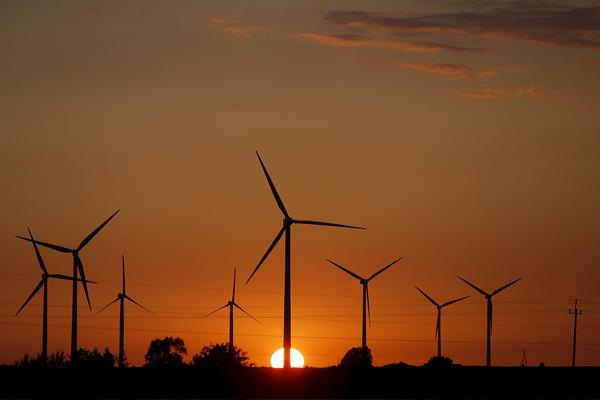
Skip to
Increasing energy demands throughout China as the country further develops and the government’s continued focus on shifting away from coal energy towards cleaner fuels have driven investments into renewable energy. However, legal professionals say the regulatory environment is not yet mature.
“Over the past several years, there have been more and more renewable energy investment projects. There was a particular spike in the last two years, mainly because of the rapid infrastructure development. There is now a collective aim by the government to improve energy throughout the country to assist business competitiveness,” says Lv Binghong, a partner at Grandall Law Firm.
Recently, China’s energy agency announced the plan to put 2.5 trillion yuan ($361 billion) into renewable energy projects across the country by 2020.
In the new five-year plan, the National Development and Reform Commission (NDRC) said that 1 trillion yuan would go towards solar power, 700 billion yuan towards wind power and 500 billion yuan towards hydropower, with the rest going towards tidal and geothermal energy.
Beijing’s aggressive pursuit of renewable energy is part of the country’s battle against the severe air pollution.
Smog has engulfed major cities since last December, and on the first day of 2017, hundreds of flights were canceled in Tianjin and all highways in the northern port city had to be closed due to poor visibility.
“The government sees the importance of long-term sustainable development. The aim is to improve productivity and opportunity for everyone while saving resources for the next generation. People understand that without sustainability, we will eventually use up all our natural resources,” says Zhou Yacheng, partner at Zhong Lun Law Firm. “The government acknowledges the need in this space so there is a lot of government encouragement for renewable energy investments.”
While catering the need domestically, Chinese investments in overseas renewable energy markets have also increased, with the country poised to become a top player in this space globally. Its overseas investments in renewable energy projects last year totaled a record $32 billion, up by 60 percent from the previous year, according to a recent report by the Institute for Energy Economics and Financial Analysis. In 2015, China invested more than $100 billion in clean energy across the world; in comparison, US injected $44 billion that year.
Back to topSUN IS SHINING
One telling example of the aggressive approach the country is now adopting in renewable energy is its thriving solar power sector. The country has became the world’s top solar generator in 2016 and five of the six largest solar module manufacturing firms globally are Chinese.
While the country goes full steam ahead on renewable energy, the regulatory side seems to need a push as industry experts observe.
“The regulatory side is still trying to catch up with the increasing business in this area, but legal development is inevitably slower than business development. The way things are done is still to do it first and then fix any problems later by adjusting the regulation,” says Lv of Grandall Law Firm.
One major setback is that currently the precentage of coal energy in the country’s energy mix remains quite high. Electricity from coal often receives priority over renewable energy, and some renewable energy capacity has been wasted. In the first half of 2016, wind and solar power curtailment across China was equivalent to that recorded for the whole of 2015 and exceeded the country’s total electricity consumption in 2015, said Wang Zhongying, director of the Center for Renewable Energy Development, Energy Research Institute under the NDRC. The average wind power curtailment rate was 19 percent for the whole 2016.
According to Sun Qingnan, senior partner at Dentons, a multinational law firm, China lacks a general energy law that includes basic regulations of all sorts of energies to coordinate the work and responsibility of different departments, and most critically, to lay the foundation for implementing the government’s macroscopic strategy in shifting to renewable energies.
“We have been talking about putting forth a general energy law since 2007. One problem is that there is overlapping management and conflicts of interest between different bureaus. When it comes to renewable energy, although the main direction of the country is to have more adoption of that, there is no actual policy saying we must give priority to clean and renewable resources over traditional coal or gas energy which results in choking smog,” she says.
Without a basic national framework for all energies, problems emerge in terms of how and to what extent local authorities should put the central government’s message into effect.
“There are different local strategies because of huge geographic differences – some places have more hydro energy resources, so we see more hydro projects approved there and more hydropower stored there, while other places have more wind energy resources and so on. This leads to an imbalance and waste,” says Sun. “Plus, there are coal-rich provinces where the economies rely heavily on traditional coal-generated electricity. It is not difficult to understand that local governments will not sacrifice their advantages without a coercive top-down method of using renewable energies.”
Zhou of Zhong Lun Law Firm echoes Sun’s perspective and points out that mismanagement of energy can create societal problems.
“Local authorities would consider many issues involved in the transition to mainly using renewable energy. For example, labor in the fossil fuel industry may not be able to simply switch to the wind or solar energy industry. Labor is not easily exchangeable between industries because each renewable energy industry requires expertise,” says Zhou.
Loopholes can be seen in a close-up of renewable energy regulations, and in many cases, the regulations lag behind the emerging and constantly growing and changing industry.
“There was a big amendment to the renewable energy law in 2009 but it was not very effective in providing solutions to problems. There are still many areas that can be improved, for example the promotion of renewable energy use in a way that can support Internet access throughout the country. Infrastructure development and investments are crucial in that regard,” says Zhou.
Under the general renewable energy law, detailed regulations have not been further clarified, such as the registration procedure, subsidy schemes and the incorporation into the national grid.
“Although we are on the right track, the system cannot run smoothly because it lacks detailed methods and guidance,” says Sun of Dentons.
This leads to uncertainty, which is currently the biggest challenge for renewable energy companies.
“For example, even with the central government’s support, without clear procedures, guidance and regulation, companies need to negotiate with local governments. Whether a project gets approved or what kind of incentives a company can get largely depends on their negotiation, which means more risks and low efficiency,” says Sun. “This all means higher cost, and any problems with local authorities could be a deadly blow.”
One telling example is a common concern in the robust photovoltaic business. Even though various incentives are available, a company can never predict how much they will finally get, and the amount can also change if the firm chooses another location or apply for another project in the same place.
Looking forward, legal experts in the area all agree that more updates and amendments are still needed to improve business competitiveness. However, with the central government’s dedication to further fuel the industry, the sector sees huge potential. And with an improved legal framework, current problems such as those related to energy pricing and management would have more solutions.
“The industry has an optimistic outlook because we can see that the government has already detected the problems and is willing to solve them. And most critically, China values renewable energy,” says Zhou of Zhong Lun Law Firm.
Back to top


